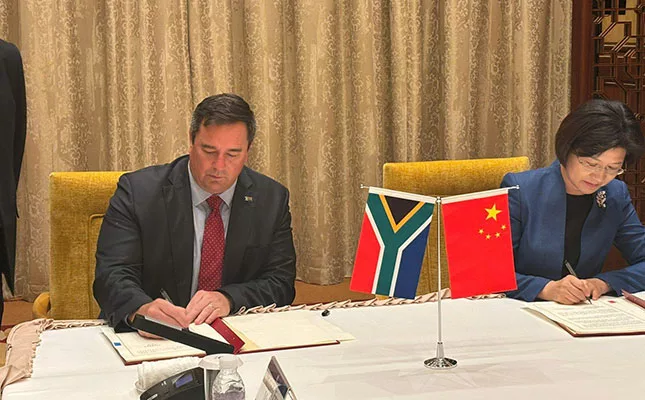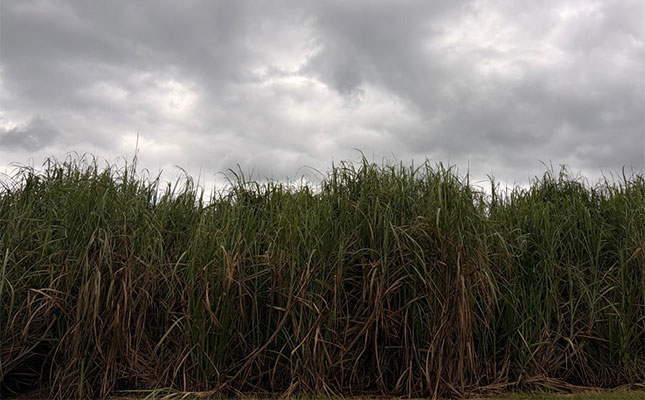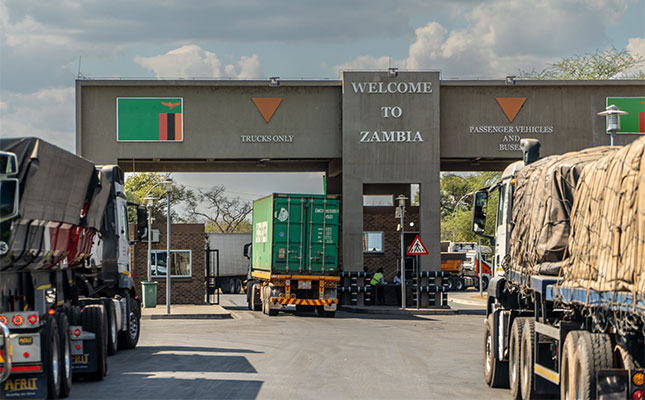
The agreement, Steenhuisen told Farmer’s Weekly, was the first of its kind to grant a single country access to the Chinese market for five different stone fruit varieties, including apricots, peaches, nectarines, plums, and prunes.
Steenhuisen was joined by industry representatives from Hortgro, the Fresh Produce Exporters’ Forum and BerriesZA to finalise the agreement, signed in Shanghai with Minister Sun Meijun of the General Administration of Customs of China (GACC).
Speaking to Farmer’s Weekly, Steenhuisen said he was proud to assist South African farmers in promoting their high-quality produce all over the world.
“Our farmers are price takers and not price makers. They produce some of the top produce in the world without being subsidised. Thanks to this new protocol, farmers in the stone fruit industry get the stability and development they are due,” Steenhuisen said.
He said the preservation of rural livelihoods and the long-term viability of South Africa’s farming communities were two of the main goals of the department’s work that went beyond trade, and that this agreement would help advance this by creating jobs, stimulating investment, and opening new market opportunities for farmers.
“The first shipments of these well-liked fruits will start in the upcoming season [from November until April 2026] thanks to this market access, solidifying South Africa’s standing as a trustworthy supplier of premium agricultural products to the international market,” he said.
In his statement, the minister said the deal was part of a broader strategy to make South African agriculture less dependent on traditional markets and more responsive to emerging demand from China’s expanding middle class.
He said that while markets were grown and developed over time, the access that this protocol unlocked would offset part of the immediate impact of US tariffs, especially on plums.
“The opening of the Chinese market could unlock approximately R400 million for us over the next five years, a figure projected to double over the next 10 years. We are of the view that the inaugural 2025/26 export season can generate approximately R28 million and R54 million in 2026/27,” he said.
China’s imports of peaches, nectarines, and plums already exceed 40 million cartons annually, more than South Africa’s entire seasonal export volume.
According to Steenhuisen, the new access is expected to boost export growth to China to 5% of total export volumes by 2032/33 and could create around 350 direct farm and packhouse jobs, with up to 600 additional jobs supported in related sectors such as transport and packaging over the next 10 years.
Steenhuisen invited a GACC technical team to visit South Africa to inspect the cherry and blueberry orchards and packhouses during the current harvest period.
“If the inspection proceeds smoothly, South Africa will likely secure cherry market access to China within the next harvest cycle, strengthen its trade ties, and unlock new export and job opportunities for the fruit sector,” he said.
Commenting on the agreement, Hortgro, the governing body of the South African deciduous fruit industry, said they were pleased to have finally concluded a process that started many years ago.
Hortgro general manager for trade and markets, Jacques du Preez, said South African apples were granted access to the Chinese market a decade ago, while the pear trade protocol was signed in 2021 after receiving approval from GACC.
“We look forward to establishing much closer, mutually beneficial working relationships with the Chinese authorities to expedite market access between the two countries in shorter time frames in future. We can’t wait to ship our first container of delicious, ethically produced stone fruit that complies with the strictest food safety standards to China,” he said in a statement.
He added that orchards and packhouses were provisionally registered with the Department of Agriculture in anticipation of gaining market access.
“South African growers and exporters are more than ready to serve the Chinese market.
Over the past few years, the South African apple and pear industry has launched several successful consumer education and awareness campaigns for apples and pears in China. The stone fruit industry will build on these campaigns and hopefully increase exports, establishing South Africa as the preferred supplier of top-quality fruit in this vast market,” he said.
Hortgro’s executive director Anton Rabe added that the industry had a multi-disciplinary team of experts addressing the growing demands and compliance issues.
“Building a market of this kind is not a silver bullet that guarantees large volumes will be exported overnight, nor is it the conclusion of the journey. Now the real challenge begins, developing this market in partnership with commercial stakeholders by maximising its potential for meaningful volumes to China,” Rabe said.
Get trusted farming news from Farmers Weekly in Google Top Stories.
➕ Add Farmers Weekly to Google ✔ Takes 10 seconds · ✔ Remove anytime






